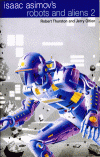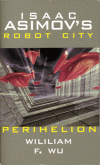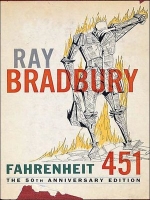This review will most likely contain spoilers for any previous books in the series, read at your own risk.
Sometime after the end of Renegade, Derec has developed some problems using his chemfets to control Robot City. Derec, Ariel, Mandelbrot, Wolruf are on their way back to Robot City along with Adam & Eve (the changelings now referred to as Silversides). This book reminds me most of “Prodigy” from the Robot City series where we saw creative drives evolve in the robots. This volume is definitely more interesting than Renegade in my opinion. Amazingly, quite a bit of the main story plot is developed and we see some more information as to the purpose of the Silversides and their quest to define what is truly “human”.



